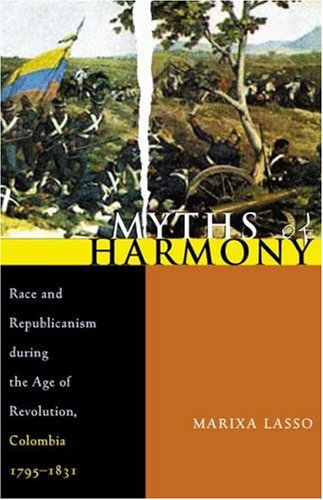Description
While most contemporary scholarship has focused the explanation for racial tolerance—or its absence—in the colonial period, 2000 IDRF Fellow Marixa Lasso argues that the key to understanding the origins of modern race relations are to be found in the Age of Revolution. In this book, Lasso rejects the commonly held belief that subalterns were passive and alienated from Creole-led patriot movements. Instead, the book shows that during Colombia’s revolution, free blacks and mulattos (pardos) actively joined and at times led the cause to overthrow the Spanish colonial government. As part of their platform, patriots called for legal racial equality for all citizens, and spread an ideology of fraternity for Colombians of all colors. Because of this paradox—the ideology of racial equality existing alongside the reality of entrenched racism—accusations of discrimination were construed as unpatriotic and divisive. Lasso’s work sheds light on the integral role anticolonial struggles had in shaping modern-day race relations and identities in Latin America. Buy from Amazon

